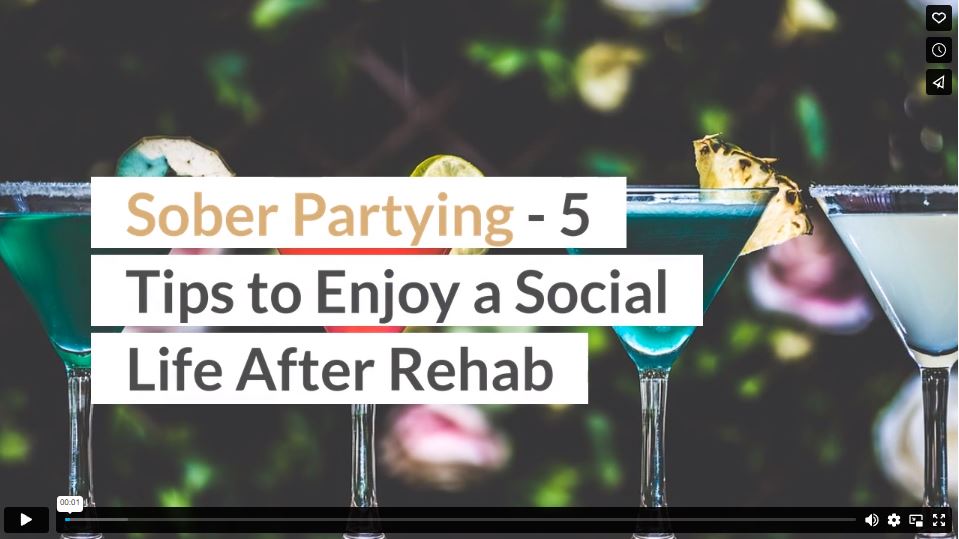You just finished substance abuse rehab treatment, and you’re ready to get back to your life. A critical aspect of recovery is that you don’t go back to toxic relationships and situations where you would be tempted to relapse. For example, you wouldn’t want to head out to happy hour with your old friends after work if you know it will trigger destructive feelings and habits.
Does this mean your social life is over or that you can never be safe around alcohol again? Are parties only a thing of your past? Thankfully, the answer to all those questions is ‘No.’ However, unlike some of your friends who do not struggle with Substance Use Disorder, parties and social outings will take a little more planning on your part to keep you in the safe zone.

(Cuyahoga / pixabay)
Here are some tips from our Utah addiction treatment center counselors and therapists to help you recapture your social life in a healthy and fulfilling way:
1. Expand Your Social Universe to “Sober” Parties
You may think sober parties are boring, and none of your friends will want to go. In fact, it’s just the opposite. A growing trend of intentional sober socializing and partying is taking the world by storm, and morning dance parties hosted by groups like Daybreaker and Morning Gloryville are all the rage these days. Other popular sober events include ‘dry’ dinner parties, juice crawls, and alcohol-free variety shows like The Shine.
For instance, at Daybreakers, participants usually arrive in workout clothes to start with some yoga and then move on to two hours of dancing with reckless abandon – all before going to school or work. Morning treats include coffee and tea, green juices, oats, and other healthy fare. Conscious Family Dinners, a concept started by Ben Rolnick, are monthly dinner parties for up to 200 people, including food, dance, yoga, psychotherapy, and motivational speakers. No alcohol or drugs allowed.
Morning Gloryville Party Starter and Social Media Strategist Toby Ford’s vision is to “prove sobriety is no barrier to having fun, and that a clear head means an untinted view of what actually makes a great social gathering.” Organizers catering to the ‘sober curious’ and those in recovery echo a similar sentiment: No more are alcohol, drugs, and the associated hangovers and regrets requirements for social gatherings and fun.
2. Get Support BEFORE You Go
Consider discussing your plans with your recovery support group ahead of time. Chances are, many of them have been in the same boat and may have some good ideas and suggestions for avoiding temptation and staying sober.
The people in your group also know you pretty well by now, since they have been your companions in the many ups and downs of recovery. Depending on where you are in your journey, they may suggest that you hold off for a bit until your resolve is stronger. Or one of them may offer to go with you to provide moral support, which ties right into our next tip.
3. Go with a Sober Friend
It’s hard enough to be in an environment where alcohol is present, but even more difficult if you are the only one not drinking. Being in this situation may make you feel alone or isolated, and those are strong negative emotions. Peer pressure isn’t just for teens. We all feel a need to belong and be accepted, and we tend to avoid anything that separates us from everybody else. Especially if what we’re not doing – drinking alcohol – is perceived as the only way to have fun and enjoy yourself.
Ask a friend to go with you as your sobriety wingman (or wingwoman). Maybe they don’t drink at all, and or they may drink moderately. Either way, though, they understand your situation and will be there to support you and help you to stay clean.
4. Prepare for Awkward or Triggering Questions
Generally, friends and acquaintances are just trying to be friendly and hospitable, so if you show up at a party or a happy hour, you’ll probably get drink offers whether you want them or not. Some examples:
“Come on over. This next round’s on me!”
“What you need is drink, my friend. What can I get you?”
Usually, a simple “No thanks” will suffice, and that will be the end of it. You’re not obligated to share with anyone why you’re not drinking. If someone gets really nosy, you can always give them a general excuse like, “I’m driving tonight,” or “I have an early day at work tomorrow.”
If you end up sharing that you’re in recovery, decide ahead of time just how much information you want to reveal. Redirect the conversation if it is getting too personal or too triggering. Your real friends will understand your need for privacy and let the subject drop.
Of course, you can always avoid any questions by faking it. Many bars today serve ‘mocktails,’ fancy drinks meant to look alcoholic but are not. Or grab a Sprite or a Coke and let people think what they want. Generally, people won’t offer you anything if you already have a drink in your hand.
5. Have an Escape Plan
There will be some times, even when you have sufficiently prepared yourself, that the atmosphere gets to be too much. You may feel like you need to have just one drink to ‘loosen up’ or to fit in better with the crowd. Or others around you who are progressively drinking more and getting drunk turns out to be too triggering. This is the time where a good escape plan comes in handy.
If you’re at the event with a sober friend, have a safe word or action to indicate it’s time to go. Prepare a failsafe excuse to give to your host and leave the situation immediately. Technology also makes it supremely easy to come up with reasons why you need to make an exit – a friend just texted you they’re in trouble, your daughter’s not where she’s supposed to be according to her phone’s GPS, etc., etc. No amount of possible embarrassment or even offense is worth threatening your sobriety.
Video

